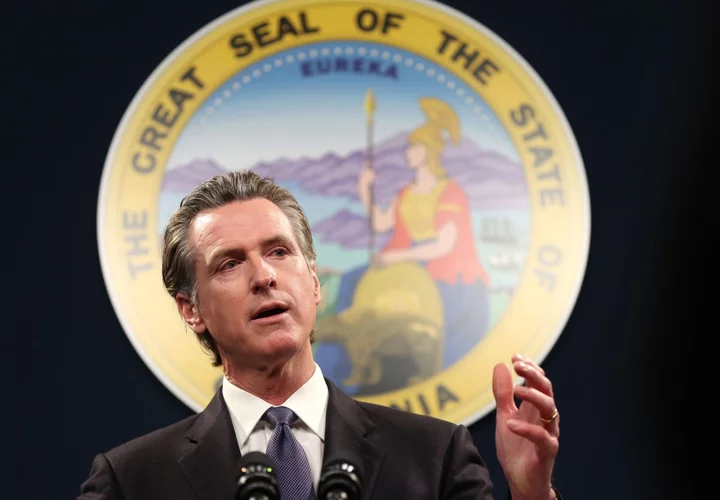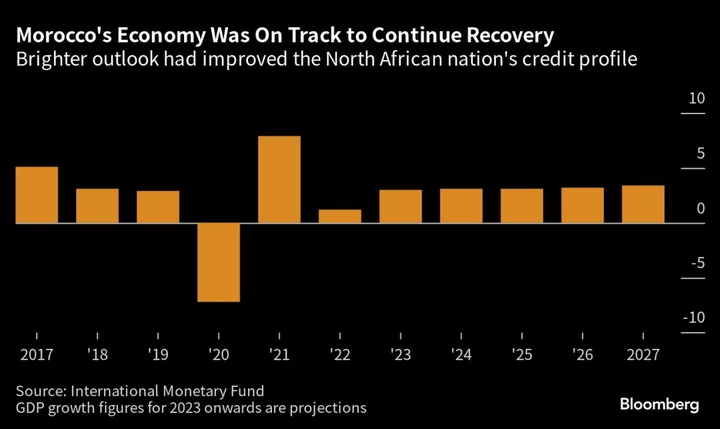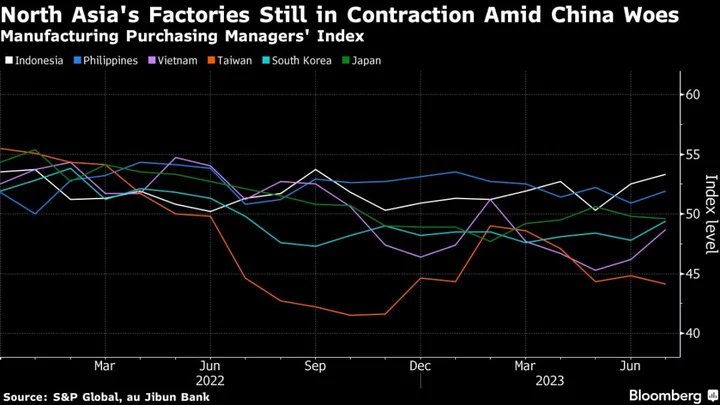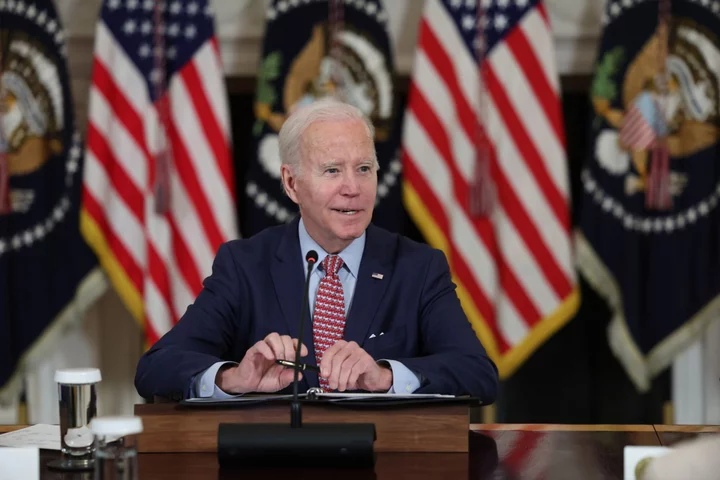Governor Gavin Newsom said California is facing a $32 billion budget deficit, a deeper hole than previously projected, as the state grapples with the effects of rising interest rates, sagging stock markets and tech layoffs on its wealthiest taxpayers.
The expected shortfall is $9.5 billion more than the January estimate of $22.5 billion, according to figures released Friday. Newsom proposed a $224.1 billion general-fund budget for the fiscal year starting July 1.
Newsom cited a variety of options to help cover the shortfall, including delaying and reducing spending — including tapping unused funds from prior years — and withdrawing money from the state’s safety net reserve.
“We are walking into a budget where we need to maintain our prudence,” he said, warning that a recession could worsen the fiscal situation in coming years.
“That is an uncertainty that we must take very soberly and seriously as it relates to macro economic headwinds,” he said.
Revenue has been hurt by the sinking fortunes of California’s wealthiest residents, who shoulder a disproportionate share of the tax burden. Roughly half of the state’s personal income taxes coming from the top 1% of earners.
Thousands of workers have been laid off from California-based tech giants including Alphabet Inc., Meta Platforms Inc. and Twitter. The collapse of Silicon Valley Bank, which mainly catered to the tech and venture capital sectors, along with two other California-based regional lenders earlier this year adds to the economic turbulence.
Friday’s deficit forecast has an extra layer of uncertainty as tax payment and filing deadlines have been extended by six months until Oct. 16 in most California counties, due to severe winter storms earlier this year.
The governor and legislative leaders, all Democrats, face tough negotiations over potential pending cuts to many of those popular programs. Legislators are required by law to pass a budget by June 15 or forfeit their pay for each day they are late.
When Newsom presented his preliminary spending plan earlier this year, he said the emerging deficit would not hinder his plans for “transformative investments” in the housing, education, childcare, health care and climate programs at the center of his progressive, second-term agenda.
(updates with Newsom comments in 3rd paragraph)









